Metropolitan Hilarion celebrates the Divine Liturgy at the Cathedral of the Dormition in London
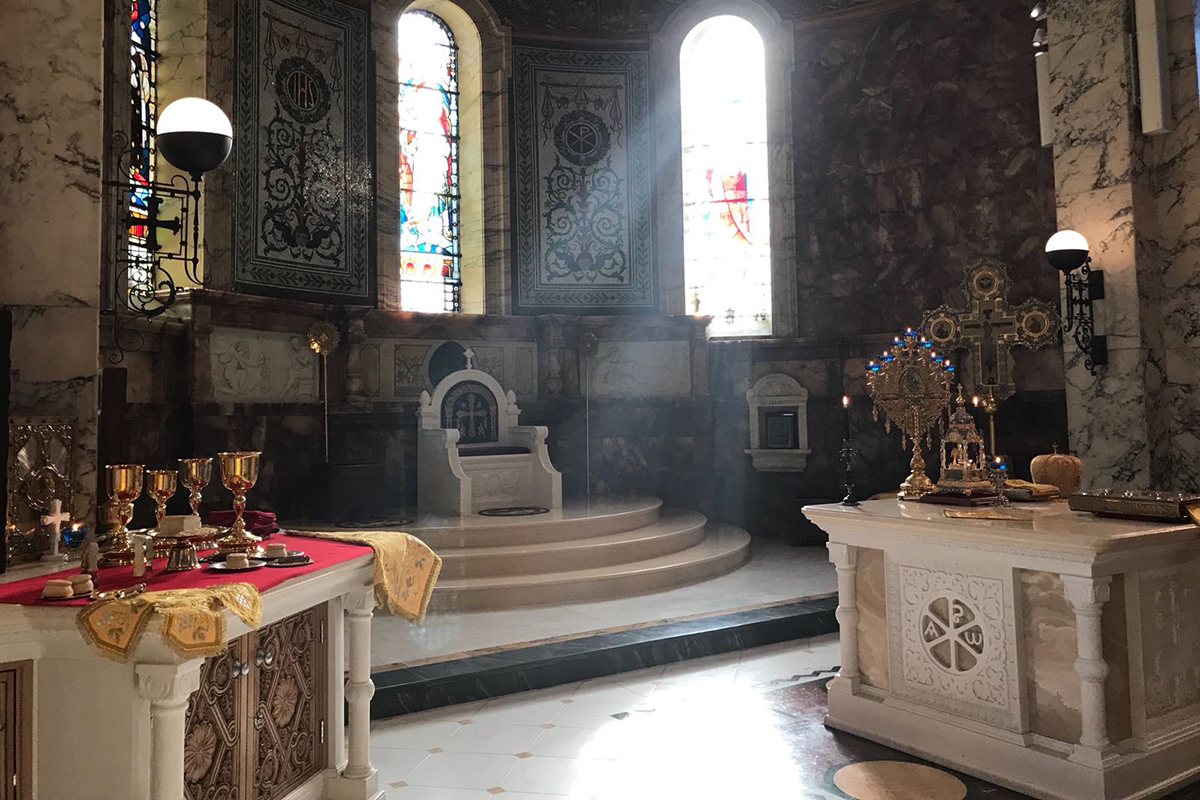



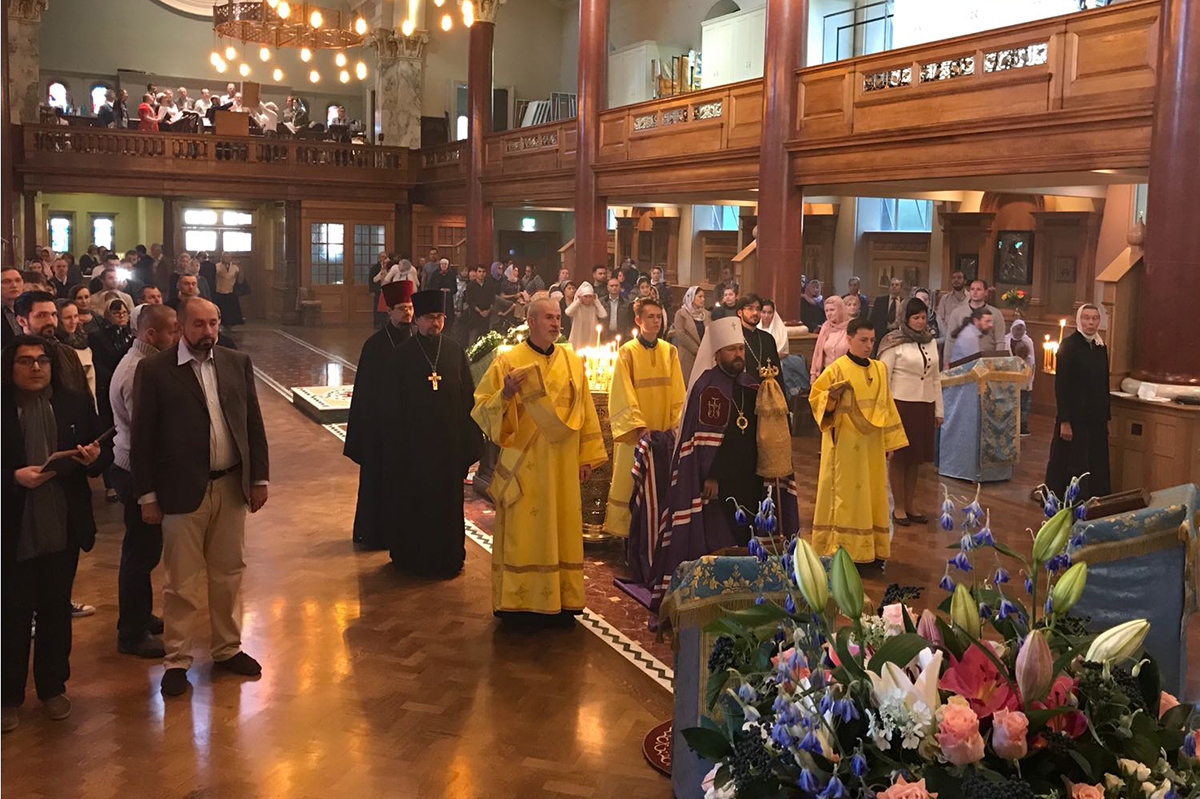

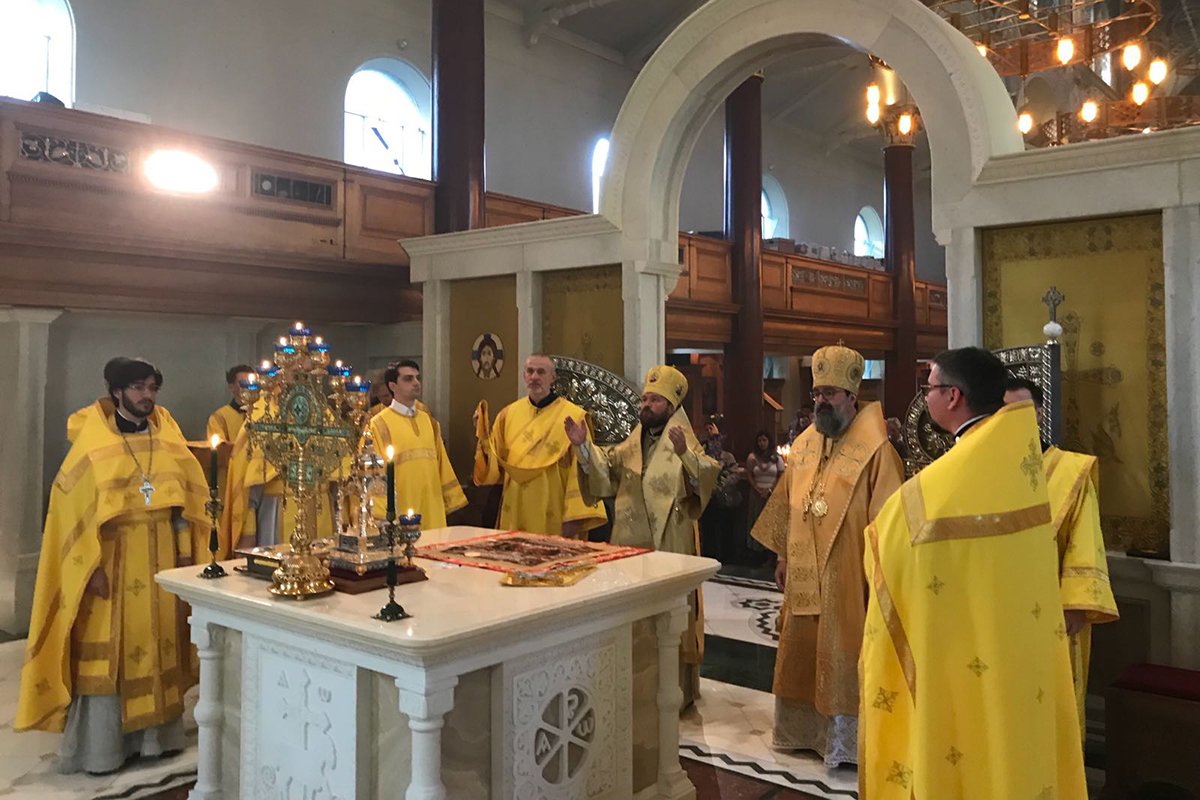



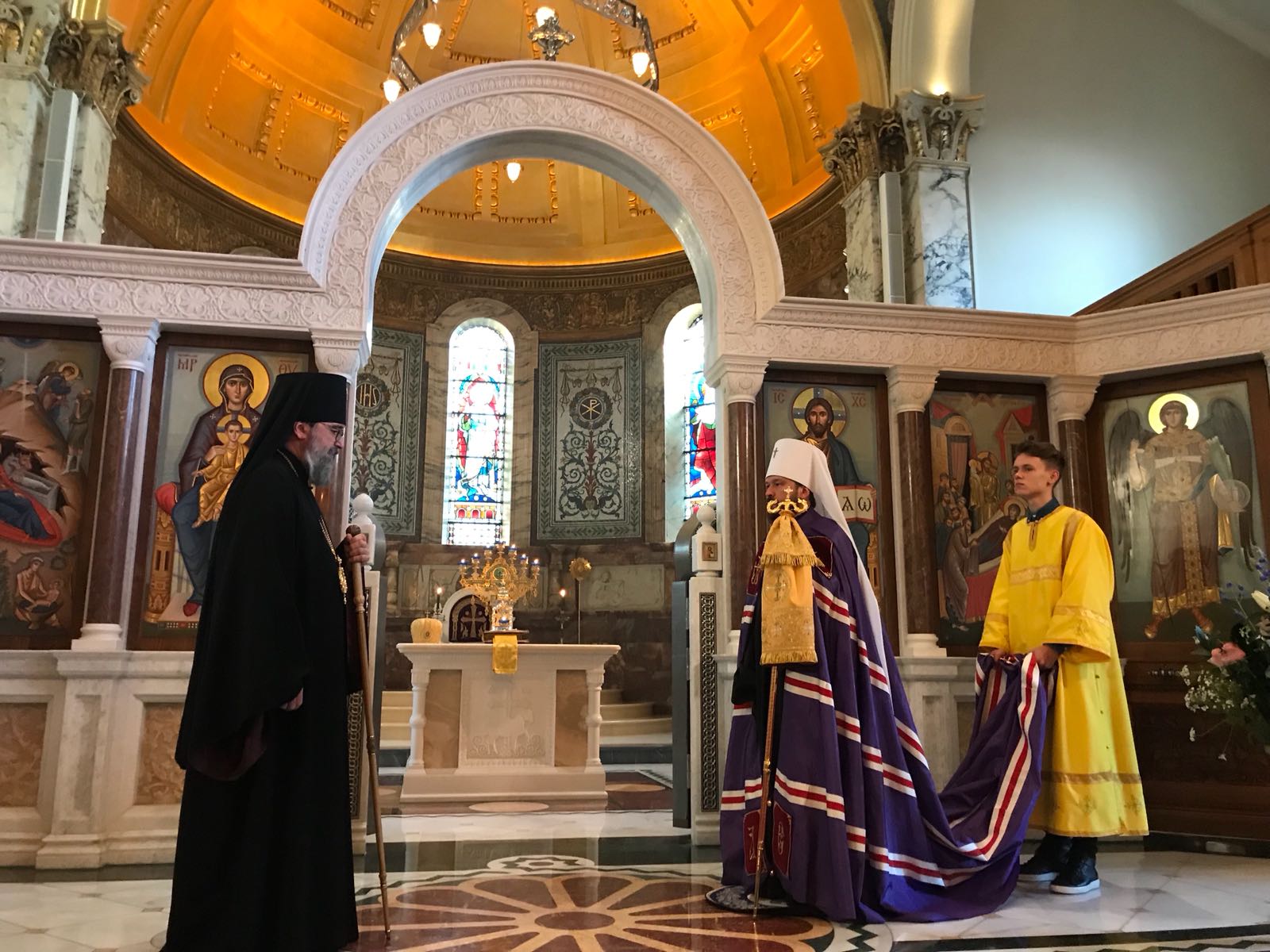
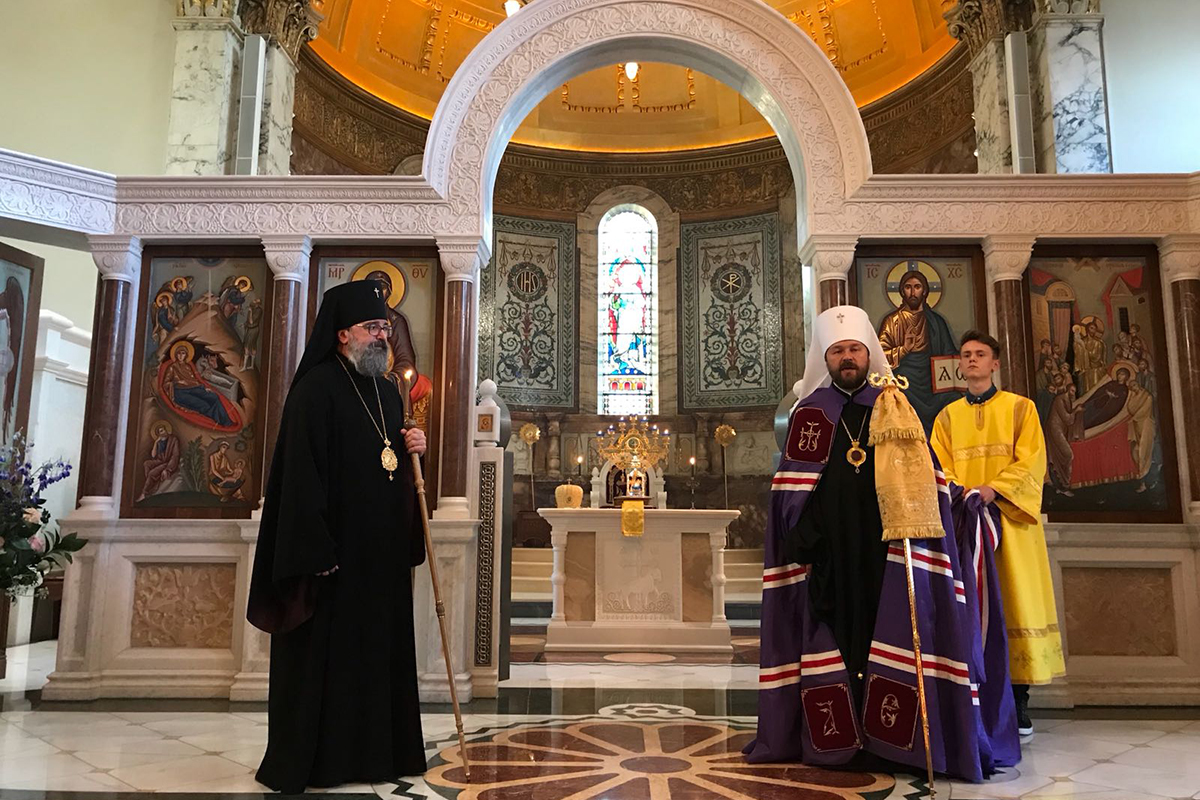


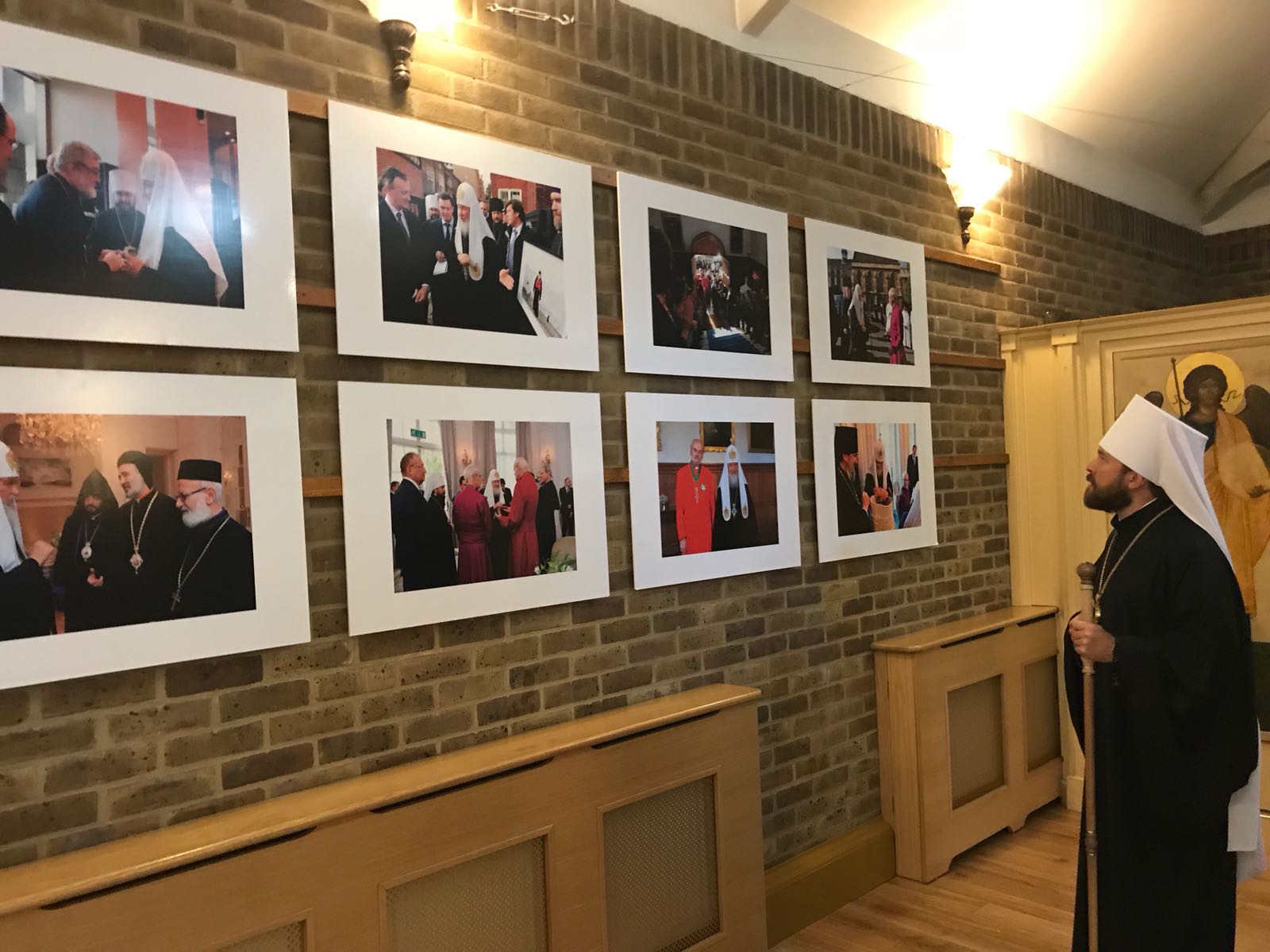

September 24, 2017, the commemoration day of St. Silouan of the Athonite – Metropolitan Hilarion of Volokolamsk, head of the Moscow Patriarchate department for external church relations (DECR), who is in Great Britain for a working visit, celebrated the Divine Liturgy at the Cathedral of the Dormition in London.
The archpastor was assisted by Archbishop Yelisey of Sourozh, Hieromonk Ioann (Kopeikin), pro-rector for training, Ss Cyril and Methodius Institute of Post-Graduate Studies; and the clergy of the Dormition Cathedral.
After the service, Archbishop Yelisey warmly greeted Metropolitan Hilarion, saying in particular, ‘We are very grateful to His Holiness the Patriarch for having entrusted you with the mission to continue the dialogue with the Anglican Church despite all the challenges. To preserve the apostolic traditions of the undivided Church takes a great deal of work. Much depends on us as the Orthodox, on how hard we will work together with our Anglican brothers. We are also grateful to you for raising the question about the future of Christianity in Western Europe, what place it will occupy’.
Archbishop Yelisey wished Metropolitan Hilarion fortitude so that he may ‘use the gifts you already have for the prosperity and assertion of the Church of Christ not only in our homeland but also beyond it, including in the British Islands’.
Then Metropolitan Hilarion addressed himself to the congregation with an archpastoral homily:
“Your Eminence,
Dear Fathers, Brothers and Sisters:
I would like to convey to you all a blessing from His Holiness Patriarch Kirill of Moscow and All Russia. Less than a year has passed since he visited this country and celebrated in this holy church. His Holiness cherishes the memory of that visit and embraces you all, dear fathers, brothers and sisters, in his prayer.
Today it is the commemoration day of St. Silouan the Athonite, one of the saints of the recent time, who is venerated in both the Church of Constantinople and the Russian Orthodox Church. Silouan the Athonite enjoys special veneration in this country, as his closest disciple, Archimandrite Sophrony (Sakharov) lived for many years and ended his days in this country, and it is thanks to him that the teaching and image of St. Silouan have become known to the whole world.
St. Silouan the Athonite shone forth in the time of the severest persecution of the Church in Russia. He died in 1938, when the mass executions of the clergy took place throughout the then Soviet Union.
St. Siouan lived in the St. Panteleimon Monastery on Mount Athos. His feats were little known in his lifetime. But after Father Sophrony published his notes and wrote a book about him, this Athonite ascetic became known to the whole world. And it turned out that the spiritual experience he endured being far away from the terrible events unfolding in our homeland at that time has proved to be precious for many people of our time.
Silouan the Athonite always lived with God; he never, not for a moment or a second, stopped to pray. His soul fully clung to the Lord, leaving no room for earthly or worldly chores. All his life was subjected to what St. Seraphim of Sarov called the seeking of the Holy Spirit. And it is not accidental that in his works St. Silouan gives much attention of the teaching on the grace of the Holy Spirit, for he partook of this grace in his spiritual experience.
One of the very important subjects in St. Silouan’s works is that of meekness. In our time, few know what meekness is, what it is for and why it is precious. Meanwhile, we remember the words of the Lord Jesus Christ that open His Sermon on the Mount. These words are voiced in each divine service: Blessed are the poor in spirit: for theirs is the kingdom of heaven (Mt. 5:3). It is the meek and the humble who were understood as poor in spirit from the earliest time of the Church’s life.
We also remember other words of the Lord Jesus Christ: ‘Learn of me; for I am meek and lowly in heart: and ye shall find rest unto your souls’ (Mt. 11:29). These words may seem to many to be an unattainable ideal; for it seems that the meekness the Lord Jesus Christ speaks about and holy Fathers teach is impossible to achieve in our time. And many sincerely do not understand what meekness is for and what it lies in.
Some believe that meekness lies in some external sings, such as meek appearance and words and a special behavior in public. But actually, meekness is an inner quality that stems from one’s awareness of one’s closeness to God. When a person bears God in his mind and heart, then there is no room left in them for pride; for he ascribes all his talents not to himself but to the Lord. He understands that all he has in this life is given by the Lord and He may take it back, as the righteous Job said after the Lord took away from him all he had.
Our life goes by in a situation of constant closeness to death. We often do not think over it, for it seems to many of us, especially to younger ones, that death is far away and long way off. And all our thoughts are wholly engrossed in earthly life. Many believe that repentance, too, can be put off, and meekness, too, is not something we need now, as we have to struggle for survival, for success, indeed. And how we will achieve success if we are meek making way for all.
But the Lord sometimes reminds us of death and eternal life and of Who is the true Lord and Master of this world. When our loved one dies and we mourn or when we ourselves fell ill, then we become meek before God. But to become meek one should not wait till a thunder crashes, till a disaster befalls, till something bad happens in our life or in the life of our loved ones. One should simply remember: all that we have is given us by God and just as the Lord gives us so He can take away if we are careless. Like that man in today’s parable whom the Lord gave a talent but he dug this talent in the ground.
The Lord calls us at the same time to use our talents, not to dig it in the ground, and to be meek and ascribe nothing to ourselves. And St. Silouan the Athonite, who lived in the recent time, is a teacher of meekness for thousands and millions of people. By his life, his experience, his works he showed what meekness is and what it is for.
I would like to wish you all that during the day today you may turn to the writings of St. Silouan. Those who have the book ‘Starets Silouan’ open it and read the chapter about meekness. And those who do not have this book find it in the internet and read this chapter. You will draw a great spiritual benefit from the words of this great ascetic whose memory we celebrate today.
I would like to wish you all that the memory of the Lord will never leave you and that we may always live with the feeling of the Lord’s presence, as St. Silouan lived, that we may always warm up in us the love of God and through this love acquire meekness – the divine gift without which it is impossible to enter the Heavenly Kingdom’.
After the Divine Liturgy, Metropolitan Hilarion and Archbishop Yelisey opened a photo display devoted to the anniversary of the Primatial visit of His Holiness Patriarch Kirill of Moscow and All Russia to Great Britain. Parishioners could also see the English version of the Patriarch Kirill’s book ‘The Mystery of Repentance’, which was presented on September 22 at the residence of the Russian ambassador to Great Britain.
DECR Communication Service
